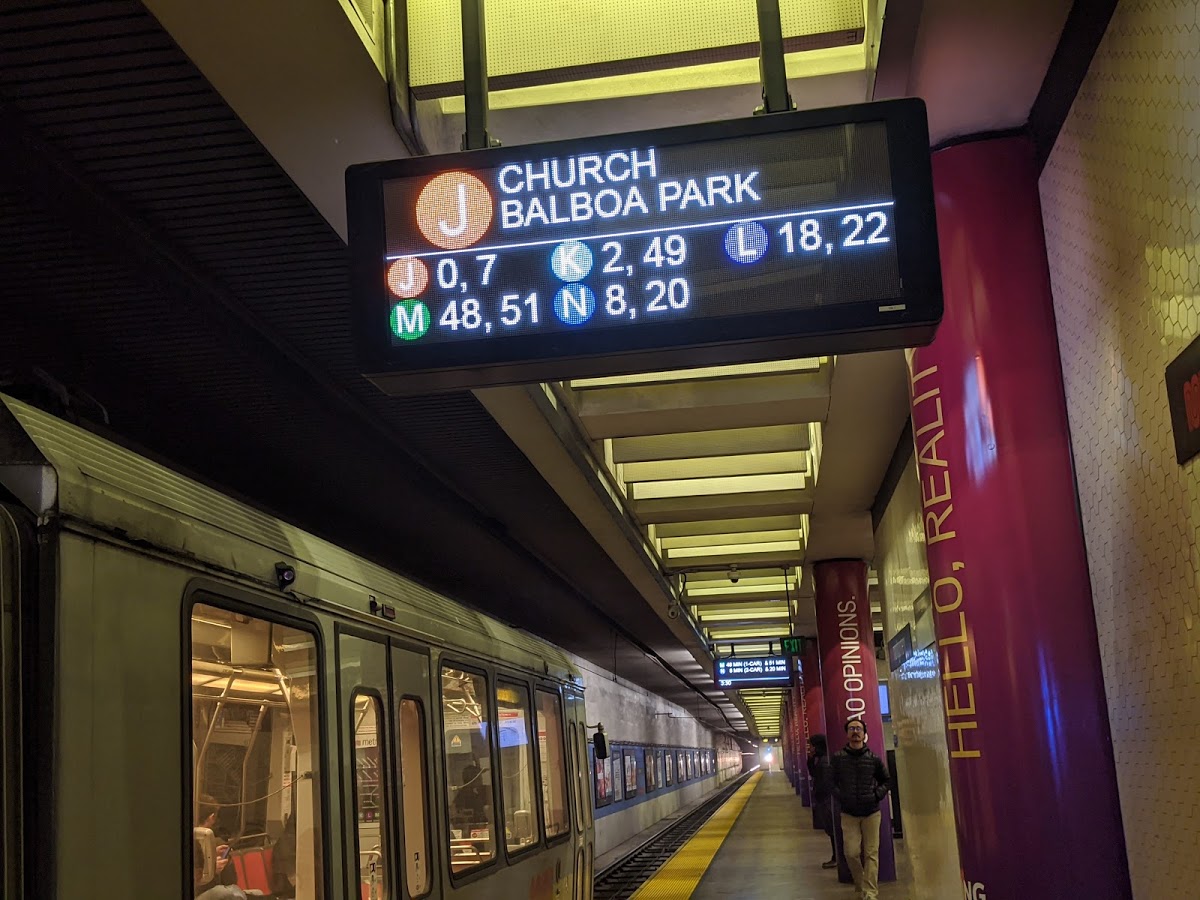Note: GJEL Accident Attorneys regularly sponsors coverage on Streetsblog San Francisco and Streetsblog California. Unless noted in the story, GJEL Accident Attorneys is not consulted for the content or editorial direction of the sponsored content.
From the Beat poets in the 1950s to the tech boom today, San Francisco prides itself on being ahead of the curve.
So when it comes to transit post-pandemic, it’s great that SFMTA is already asking the question “How should Muni adapt to meet the needs of riders” as part of its 2022 Service Plans.
Unfortunately, SFMTA’s developing answer appears to be missing the bus.
In planning any major project, you must involve all stakeholders with equal say. In the case of the future of Muni, to oversimplify, that means two main stakeholders: San Francisco Municipal Transportation Agency (SFMTA), the agency that runs Muni, and the community, the riders who make the system what it is.
Each brings noteworthy resources to the table. The SFMTA provides us with service performance data, wait time, ride time, passenger volume, and reliability with professional analysts. The community provides the planning process with two important pieces of information: why we use Muni the way we do and how Muni meets and doesn’t meet our needs. Both stakeholders are essential in order to create a post-pandemic service plan that not only reflects today and tomorrow’s reality but also one the community can take ownership and pride in. If the community is not an active and heard stakeholder of the planning process, then the future Muni service network will repeat the shortfalls of the past.
SFMTA is asking the public which of their proposed three 2022 transit service models (Familiar, Frequent, and Hybrid) would best fit their transportation needs. Each plan is based primarily on SFMTA service performance data, without prior input from the community on what their transportation priorities are. The reality is that none of the plans get us back to pre-pandemic levels of service, and SFMTA has yet to set a date for when riders can expect to see all the routes returned.
Adding to the perceived sleight of hand is the feedback process itself, which centers on an online-only survey that has more questions about demographics than actual service. Missing is any opportunity to comment on the plans themselves, for example: the J Church turnaround at Church and Market that has left many riders perplexed is entirely omitted from the survey. By not allowing people to comment or truly engage in the process, the survey leaves plenty of room for biased interpretation and analysis.
And that’s before we get into the fact that this outreach process is reaching a tiny proportion of Muni riders. With understaffed departments and a short, two-month outreach schedule, the SFMTA is reaching those who are easiest to reach: affluent San Franciscans who are plugged into City processes and have easy digital access. They are not reaching seniors or SRO residents without computers. They are not reaching immigrants and other non-English speaking residents. As much as SFMTA staff talks about equity, so many Muni riders are being left out of this process.
Muni should absolutely change to meet the needs of riders in a post-pandemic world. But let’s not just change our transit system, let’s change the process too. Let’s bring back pre-pandemic service now and then begin a planning exercise that allows people to engage in real dialogue and problem-solving instead of fancy charts and pedantic presentations.
The last time San Francisco did a system-wide service plan was over a decade ago. That was in 2010 in the wake of the Great Recession, and it prompted massive community backlash to SFMTA and a decade of distrust. Repeating the mistakes of our past isn’t going to save Muni, nor does it represent the type of world-leading innovation that has always been at the core of this great city.
***
Zack Deutsch-Gross is Advocacy Director for the San Francisco Transit Riders. Pi Ra is Transit Justice Program Director for Senior and Disability Action





